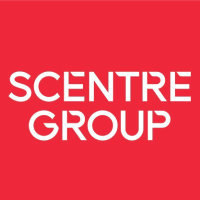
Capital & Counties Properties PLC
LSE:CAPC

Profitability Summary
Capital & Counties Properties PLC's profitability score is hidden . We take all the information about a company's profitability (such as its margins, capital efficiency, free cash flow generating ability, and more) and consolidate it into one single number - the profitability score. The higher the profitability score, the more profitable the company is.
Profitability Score
We take all the information about a company's profitability (such as its margins, capital efficiency, free cash flow generating ability, and more) and consolidate it into one single number - the profitability score. The higher the profitability score, the more profitable the company is.
We take all the information about a company's profitability (such as its margins, capital efficiency, free cash flow generating ability, and more) and consolidate it into one single number - the profitability score. The higher the profitability score, the more profitable the company is.
Profitability Score
Margins
Earnings Waterfall
Capital & Counties Properties PLC

Margins Comparison
Capital & Counties Properties PLC Competitors

| Country | Company | Market Cap |
Gross Margin |
Operating Margin |
Net Margin |
||
|---|---|---|---|---|---|---|---|
| UK |

|
Capital & Counties Properties PLC
LSE:CAPC
|
1.1B GBP |
Loading...
|
Loading...
|
Loading...
|
|
| US |

|
Simon Property Group Inc
NYSE:SPG
|
64.1B USD |
Loading...
|
Loading...
|
Loading...
|
|
| US |

|
Realty Income Corp
NYSE:O
|
57.9B USD |
Loading...
|
Loading...
|
Loading...
|
|
| SG |

|
CapitaLand Integrated Commercial Trust
SGX:C38U
|
19B |
Loading...
|
Loading...
|
Loading...
|
|
| US |

|
Kimco Realty Corp
NYSE:KIM
|
14.8B USD |
Loading...
|
Loading...
|
Loading...
|
|
| AU |

|
Scentre Group
ASX:SCG
|
20.6B AUD |
Loading...
|
Loading...
|
Loading...
|
|
| US |

|
Regency Centers Corp
NASDAQ:REG
|
14B USD |
Loading...
|
Loading...
|
Loading...
|
|
| HK |

|
Link Real Estate Investment Trust
HKEX:823
|
91.7B HKD |
Loading...
|
Loading...
|
Loading...
|
|
| FR |

|
Klepierre SA
PAR:LI
|
9.4B EUR |
Loading...
|
Loading...
|
Loading...
|
|
| US |

|
Federal Realty Investment Trust
NYSE:FRT
|
9.1B USD |
Loading...
|
Loading...
|
Loading...
|
|
| US |

|
Brixmor Property Group Inc
NYSE:BRX
|
8.7B USD |
Loading...
|
Loading...
|
Loading...
|
Return on Capital
Return on Capital Comparison
Capital & Counties Properties PLC Competitors

| Country | Company | Market Cap | ROE | ROA | ROCE | ROIC | ||
|---|---|---|---|---|---|---|---|---|
| UK |

|
Capital & Counties Properties PLC
LSE:CAPC
|
1.1B GBP |
Loading...
|
Loading...
|
Loading...
|
Loading...
|
|
| US |

|
Simon Property Group Inc
NYSE:SPG
|
64.1B USD |
Loading...
|
Loading...
|
Loading...
|
Loading...
|
|
| US |

|
Realty Income Corp
NYSE:O
|
57.9B USD |
Loading...
|
Loading...
|
Loading...
|
Loading...
|
|
| SG |

|
CapitaLand Integrated Commercial Trust
SGX:C38U
|
19B |
Loading...
|
Loading...
|
Loading...
|
Loading...
|
|
| US |

|
Kimco Realty Corp
NYSE:KIM
|
14.8B USD |
Loading...
|
Loading...
|
Loading...
|
Loading...
|
|
| AU |

|
Scentre Group
ASX:SCG
|
20.6B AUD |
Loading...
|
Loading...
|
Loading...
|
Loading...
|
|
| US |

|
Regency Centers Corp
NASDAQ:REG
|
14B USD |
Loading...
|
Loading...
|
Loading...
|
Loading...
|
|
| HK |

|
Link Real Estate Investment Trust
HKEX:823
|
91.7B HKD |
Loading...
|
Loading...
|
Loading...
|
Loading...
|
|
| FR |

|
Klepierre SA
PAR:LI
|
9.4B EUR |
Loading...
|
Loading...
|
Loading...
|
Loading...
|
|
| US |

|
Federal Realty Investment Trust
NYSE:FRT
|
9.1B USD |
Loading...
|
Loading...
|
Loading...
|
Loading...
|
|
| US |

|
Brixmor Property Group Inc
NYSE:BRX
|
8.7B USD |
Loading...
|
Loading...
|
Loading...
|
Loading...
|

